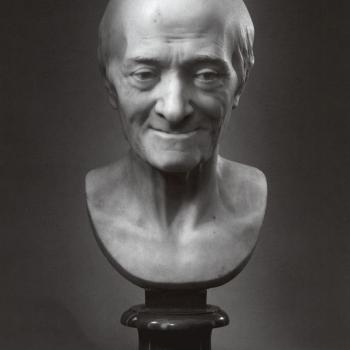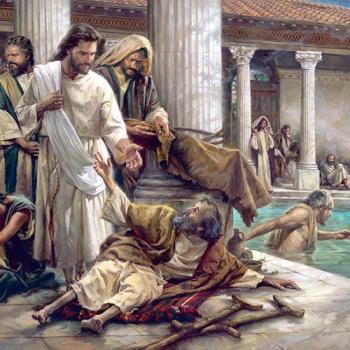When I was a young professor, the chair of my department frequently would say in department meetings that, in her estimation, one of the primary goals of the philosophy department was to shape and mold our students into moral human beings. I didn’t buy it then and I still don’t. Making moral people is well above my skill level and pay grade–God doesn’t even seem to be very good at it.

Every summer one of my projects is to tackle a novelist of notable reputation whose work I have never read. A few summers ago, that novelist was J. M. Coetzee, the multiple-award-winning South African novelist of whom I had heard much but had read nothing. One of the teams in the program I teach in and used to run assigned Coetzee’s Diary of a Bad Year as an example of post-modern fiction; there were a few copies on one of the bookshelves in the main office, so I picked one up and started reading on the bicycle at the gym. I highly recommend it.
Señor C, an aging but famous writer who is the primary narrator of the novel, has been asked to contribute several short essays on contemporary and controversial topics to a volume entitled “Strong Opinions.” Señor C’s attention span has become too short to sustain longer writing projects (something I completely understand), and anyways, what’s not to like about this call for opinionated essays? “An opportunity to grumble in public, an opportunity to take magic revenge on the world for declining to conform to my fantasies: how could I refuse?”
Señor C’s prospective grumbling in public immediately reminded me of an Op-Ed in the New York Times a while ago, entitled “What’s the Point of a Professor?”by Emory University English professor Mark Bauerlein.
What’s the Point of a Professor?
The Facebook tag for this essay is “We used to be mentors and moral authorities. Now we just hand out A’s.” The general thrust of Bauerlein’s argument is to bemoan the loss of the good old days in academe when undergraduates thirsting for meaning and a moral compass sat enthralled at the feet of brilliant professors just waiting to mentor and disciple their young charges into moral and epistemological adulthood. “I revered many of my teachers,” one colleague wistfully remembered from his 60s college education, and Bauerlein compares stumbling over the legs of dozens of English majors sitting in the hall outside the doors of their professors for consultations while a student at UCLA in the 80s with the vastly reduced number of outstretched student legs in the same halls when he returned to his alma mater in February.
Students and professors don’t talk outside of class anymore, Bauerlein complains. The reverence is definitely decreasing. In the good old days, “students looked to professors for moral and worldly understanding. Since then, though, finding meaning and making money have traded places.” Bauerlein has the survey numbers to back it up—and they add up to an identity crisis for professors. “When college is more about career than ideas, when paycheck matters more than wisdom, the role of professors changes.” But to what?
Bauerlein closes his Op-Ed with a call for the professoriate to change its ways, pointing out that “You can’t become a moral authority if you rarely challenge students in class and engage them beyond it.” If we fail to do that, “We become not a fearsome mind or a moral light, a role model or inspiration. We become accreditors.” I posted the link to this essay on a Facebook page for the faculty where I teach, simply asking “Worthy of discussion?” One colleague in theology immediately asked tongue-in-cheek “Can someone summarize this for me? I’m pretty busy grading . . .” As a new semester is about to begin, I have a few preliminary points to offer.
- Although Bauerlein scatters some numbers from uncited surveys and a smattering of data from uncited studies into his essay, most of his argument is rooted in anecdote. I have no problem with this in principle—as a good friend and colleague once said, “As academics get older we tend to slip farther and farther into our anecdotage.” Where I do have a problem is when anecdote turns into sermonizing. No one likes that, especially from someone who has no particular claim to authority other than having been doing what he does for a long time. In Coetzee’s Diary of a Bad Year, Señor C’s typist and transcriber Anya exhibits this sort of annoyance after reading a little too much pontificating from the old guy. There is a tone—I don’t know the best word to describe it—a tone that really turns people off. A know-it-all tone. Everything is cut and dried: I am the one with all the answers, here is how it is, don’t argue, it won’t get you anywhere. . . . I wish you would cut it out. Amen.
- I do not believe that I am anyone’s moral authority or light, a mentor seeking disciples, or a possible object of someone’s reverence. I’m not even looking to be my students’ friend. I’m a teacher. More on that later.
- Bauerlein writes that “In 1960, only 15 percent of grades were in the ‘A’ range, but now the rate is 43 percent, making ‘A’ the most common grade by far.” I’ll ignore his assumption that people who get A’s can’t possibly have also developed a moral compass or found meaning, and simply mention that apparently the memo about grade inflation hasn’t gotten to my corner of the academic world yet. I was fully responsible for all of the grading for sixty-two students in my three classes last semester. Five of those students earned an ‘A’ or ‘A-minus’. That’s 8 percent, in case you are keeping track, and it is typical. Grade inflation is a regular topic of discussion in the program I directed for four years, a program in which seventy-plus faculty and just short of 1800 students are involved in a given semester. In the last semester that I directed that program, 13.5 percent of the grades earned were ‘A’ or ‘A-minus’. I don’t know what’s going on at Emory or UCLA—I have heard that there is serious grade inflation at some of the elite institutions of higher learning in this country—but in my anecdotage I am pleased to report that students are still receiving the grades that they earn in my corner of things.
- I don’t know why students weren’t sitting in the hall at UCLA waiting to converse with their professors on the day that Bauerlein visited his alma mater last February, but on the frequent days when my colleagues’ and my offices are filled with students seeking advice and input I think we wish something similar might infect our students just to give us a break. And by the way, email communication can be a very effective and efficient form of interaction between student and professor (Bauerlein doesn’t think it can be). Students keep strange hours—I frequently spend my first early hours of the day (6:00-8:00 AM) reading and responding to a dozen or more good questions, comments, and observations about course work and life in general that I have received from my night-owl students in the early hours of the morning. They never seem to sleep (except, on occasion, in class).
As a professor, I am a facilitator of lifetime learning, a person who points students in fruitful directions, helping them identify and become skillful in the use of tools that will help them construct their own moral frameworks intelligently. The liberally educated lifetime learner is equipped both to seek and create meaning throughout her life. I take pride in playing a part in this process. I have thought a lot over the past thirty years about the day-to-day dynamic between professor and student; I continually return to the difference between an idol and an icon.
The point of a professor is to be Virgil to the student’s Dante, guiding the educational journey, relying on knowledge and experience to point out the pitfalls and attractions of a journey that each person must encounter individually. The professor helps the student learn to identify what is important and what is not in the perpetual sifting process of education. The professor is not the main attraction at any point in this process. The professor is an icon—something to look through or past, in other words—rather than an idol—something to look at. There is a reason, Professor Bauerlein, that the Second Commandment is a prohibition against idolatry. Human beings are inveterate idolaters, more than happy to pattern themselves after someone or something else rather than to take on responsibility for themselves. For those who are interested in creatively addressing the undoubtedly real shift in higher education toward preparation for a good job and financial success that has been going on for a while now, I highly recommend iconography. As for your call for a return to idolatry: I wish you would cut it out.

















